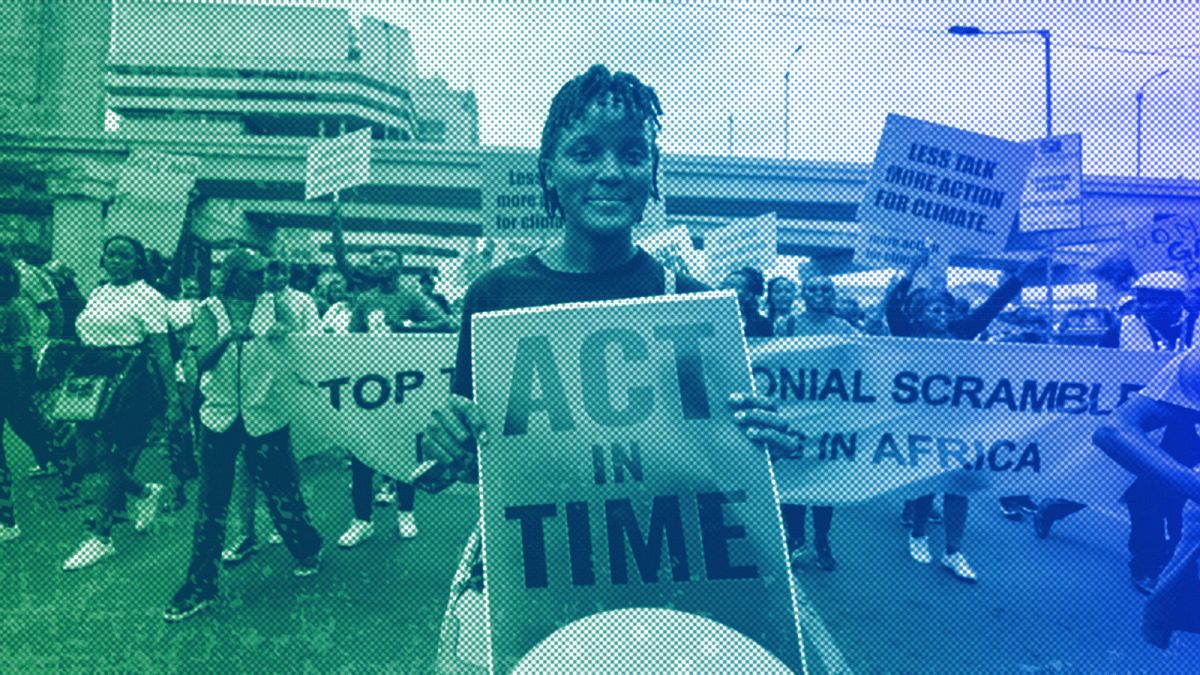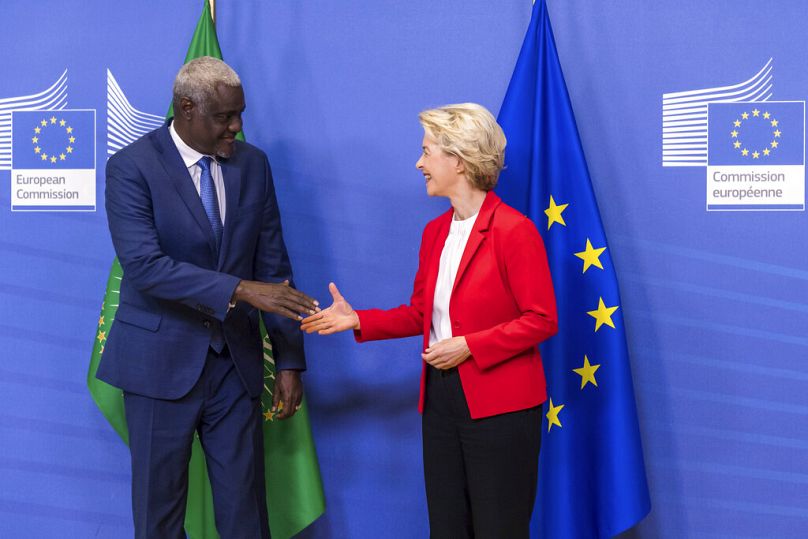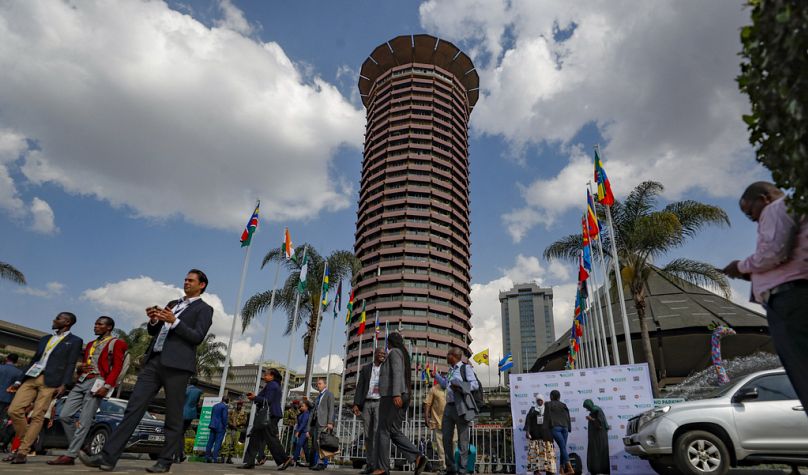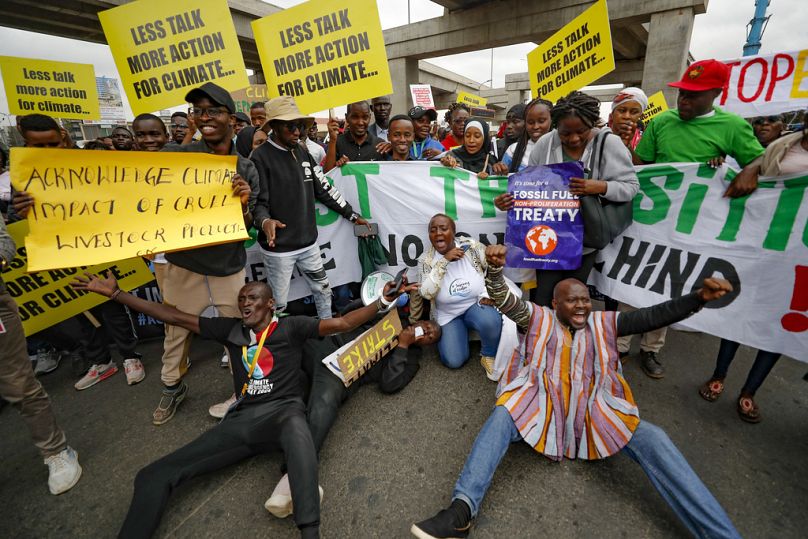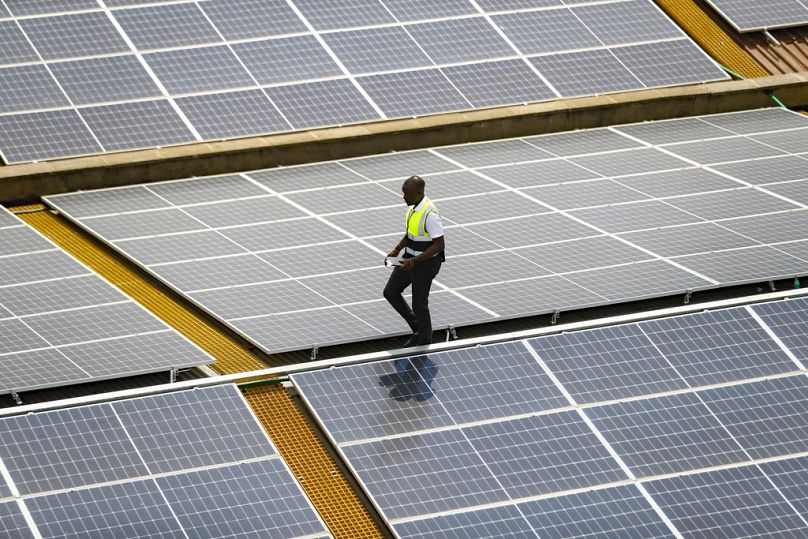It’s time for the West to recognise that African nations are the world’s most potent solution to climate change — and are now in the driver’s seat on climate action, Nathaniel Mong’are writes.
The first-ever Africa Climate Summit being held in the capital of my home country this week has proved clearly that the locus of real climate action is dramatically shifting.
Although African nations are today the world’s smallest carbon polluters, contributing to just 10% of global emissions, they are also on track to become the world’s fastest-growing economies within decades according to the African Development Bank Group.
To avoid tipping over into climate disaster, we have to ensure that this growth is clean.
This is why the joint statement released by the chair of the African Union Commission — the secretariat for the 55-member intergovernmental body — with the Government of Kenya and the COP28 presidency to “triple renewable energy capacity” and “double energy efficiency” by 2030 is a vital step forward.
The West is failing to back Africa's climate financing needs
The Nairobi summit is not just the first time that the countries of this continent have come together to declare war on climate change in one voice. It’s the first time a specific commitment to clean energy has been put on the table at such a high level.
Although it has yet to take the force of a binding pan-African agreement, with several member states still grumbling in protest, the African Union Commission has never before publicly endorsed such a bold idea.
Could it be that Africa is moving faster than the West on renewable energy? It may be too soon to form a hard judgment on that, but no political representatives of the UK and US have publicly supported the goal of tripling renewable energy.
And despite the EU’s own public support for the tripling target, internal EU documents suggest that Brussels' own ambitions fall far short of it.
So not only are Western leaders falling behind Africa in this respect — they are also failing to provide sufficient climate financing to Africa despite escalating demands in the West for a phase-out of fossil fuels.
Solidarity between developing countries kicks in
Of course, it’s not enough to merely make a statement. No declaration, however ambitious, means anything without the money to back it up.
Yet this could be about to change — and not due to the West, but due to solidarity between developing countries.
A landmark decision announced at the Africa Climate Summit by Dr Ahmed Al-Jaber, president of the upcoming UN climate summit in Dubai, is doing what no previous COP presidency has ever done before.
His declaration of a new $4.5 billion (€4.2bn) climate facility dedicated to ramping up investments in African renewable energy is a game-changer.
The fine print is also crucial. The initial investment is designed to mobilise a further $13bn (€12.1bn) in project finance via clean energy companies Masdar and AMEA Power, with potentially much more investment to follow.
Longstanding obstacles to climate projects to be finally removed
At the summit, Sultan Al-Jaber made clear that this initiative would prove to the world the commercial case for investing in Africa’s clean energy revolution, and provide a replicable model that could be scaled up rapidly across the continent.
The COP28 presidency is also convening meetings with the world’s biggest financial institutions to remove longstanding barriers preventing money from flowing into urgently needed climate adaptation and mitigation projects for decades.
In August, Sultan Al Jaber brought together experts from the World Bank, International Monetary Fund, International Finance Corporation, European Climate Foundation and other key institutions in Abu Dhabi to figure out how to reform international finance to unlock the $2.4 trillion (€2.23tn) needed annually for climate financing across developing countries.
So far, this is an order of magnitude more than Western countries have ever done.
By explicitly attempting to break a deadlock that has kept Africans on their knees for decades, this new approach holds real hope of unleashing the finance we desperately need to accelerate Africa’s pathway to becoming a clean energy superpower.
The ball is now in your court
And superpower is no exaggeration. After all, experts know that Africa not only has far higher solar potential than the rest of the world but could power much of our planet using just a fraction of land.
Energy is of course the backbone of economic growth and industrial development. With clean superabundant energy, Africa can rapidly become a global hub for the clean industries of the future.
There’s no need for this to devolve into a Hobbesian scramble for resources of the kind that has plagued Africa since the colonial era. Rather, it’s a race to the top in which everyone can be a winner.
By investing in Africa, the world is investing in a future of sustainable prosperity for all.
That’s why I am calling on our Western friends to join us in partnership with this historic endeavour. Put your money where your mouth is so that we can rush together into the clean energy future.
Africa has made the first move – the ball is now in your court.
Nathaniel Mong’are is a Senior Advisor to the Prime Cabinet Secretary of the Republic of Kenya. He is a former parliamentary candidate for North Mugirango, while he also served as Director of Programmes and ICT for the ANC party.
At Euronews, we believe all views matter. Contact us at view@euronews.com to send pitches or submissions and be part of the conversation.
